Cough up some resources, say traffic cops
Traffic policemen lower down the food chain feel that their seniors don’t care for them.
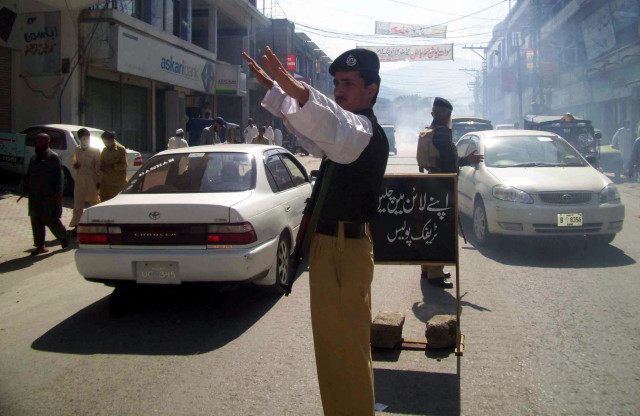
Traffic policemen lower down the food chain feel that their seniors don’t care for them. There is no shelter or shade for them, even at the most important and busy roundabouts in the city, forcing police officers to stand in the middle of the road under the burning sun.
An officer of traffic police zone III, who is deployed at Sharae Faisal near Star Gate, said that officials not only have to bear the hot sun while they are fasting, in ordinary days too they have no shelter or even drinking water facilities. If they need a drink, they must arrange for it themselves. “We walk to a nearby hotel to get water or keep a bottle with us,” he said, adding that the administration did not keep their basic needs in mind.
Even going to the bathroom is a complicated task. Officials have to resort to using public toilets in a mosque or hospital.
These small inconveniences combine to make their job a terrible ordeal-not to mention the health risks. The smoke emitted by vehicles is inhaled by traffic policemen all day. As a result, more and more officers are contracting breathing problems and related diseases. “Not only do we get no preventive measures, we are not even given treatment facilities,” an official said.
Farida Agha and Agha Sadaruddin of the Pakistan Medical Research Council published a report on the “Effect of Environmental lead pollution on Blood Lead Levels in Traffic Police Constables in Islamabad” in the Journal of the Pakistan Medical Association in 2005. While Islamabad’s pollution levels can be assumed to be much lower than Karachi’s, the study sheds some light on what the scenario is probably like for Karachi’s traffic constables. Blood samples were collected from 47 traffic police constables, 21 to 45 years of age, posted in different areas of Islamabad and controlling traffic from three months to 18 years, eight hours a day, six days a week. The mean blood lead level among constables (27.27 µg/dl) was significantly high as compared to that of the controls (3.22 µg/dl). Twenty-one per cent of constables had elevated blood lead levels (over 25 µg/dl) and 13 per cent had levels above the safety limit (40 µg/dl). The mean blood manganese levels in traffic constables (21.94 µg/dl) were significantly higher than in controls (1.70 µg/dl). The mean blood lead levels were significantly high in traffic constables of Karachi (47.7 µg/dl) as compared to Islamabad (27.2 µg/dl), which shows direct relation of rise in blood lead levels with vehicle exhaust.
Traffic officials do not even have medical insurance. Officials complained that they do not have the resources to go to a private hospital since the government does not offer them any rebates on treatments.
Even face masks, the only preventive tools used by traffic policemen, are bought out of their own pockets.
A constable appointed at Shaheen Complex Chowk said that his duty is simply to regulate traffic. “I don’t have the authority to issue a ticket,” he said. He explained that everyone is quick to slander the traffic police, accusing them of all ranges of corruption, “but we, officials at the lower rung of command, have nothing to do with these allegations”.
“The troubles that we go through to perform our duties are not seen either by the higher officials or the general public,” said the constable.
“Senior-level police officials are so used to sitting in their air-conditioned rooms that they never want to come out,” said a traffic policeman on conditions of anonymity. If these officials had the time to come out of their government-granted luxury cars, they might ask us what problems we have and what kind of lives we lead, he added.
DIG Traffic Khurram Gulzar could not be immediately contacted for comment.
Published in The Express Tribune, September 1st, 2010.


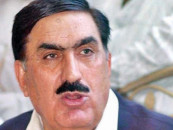
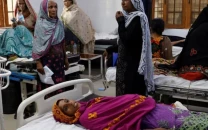

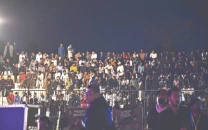
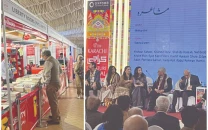











COMMENTS
Comments are moderated and generally will be posted if they are on-topic and not abusive.
For more information, please see our Comments FAQ